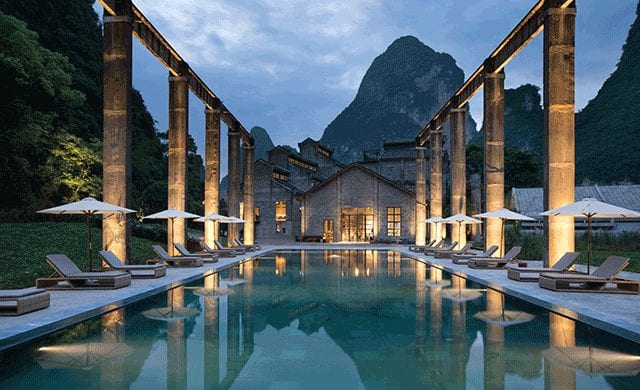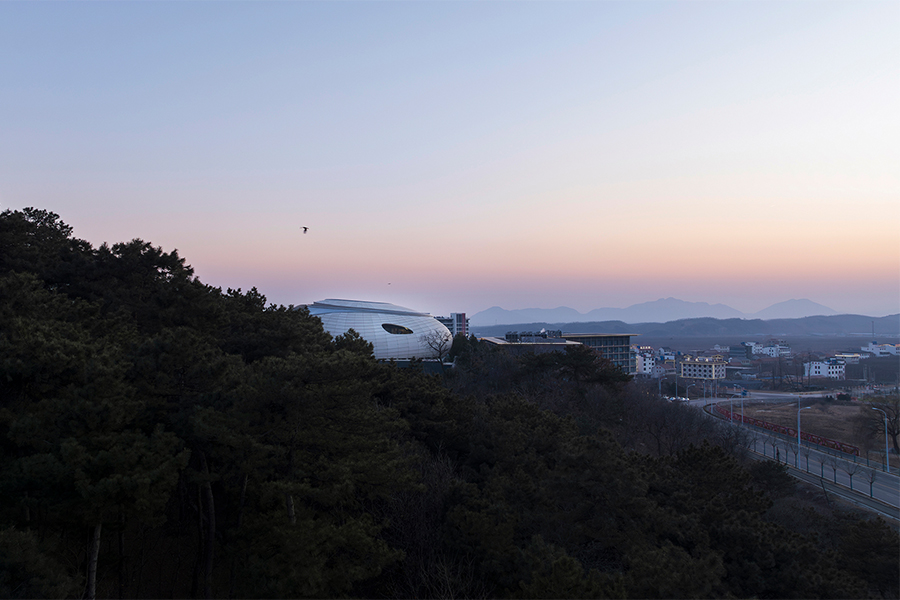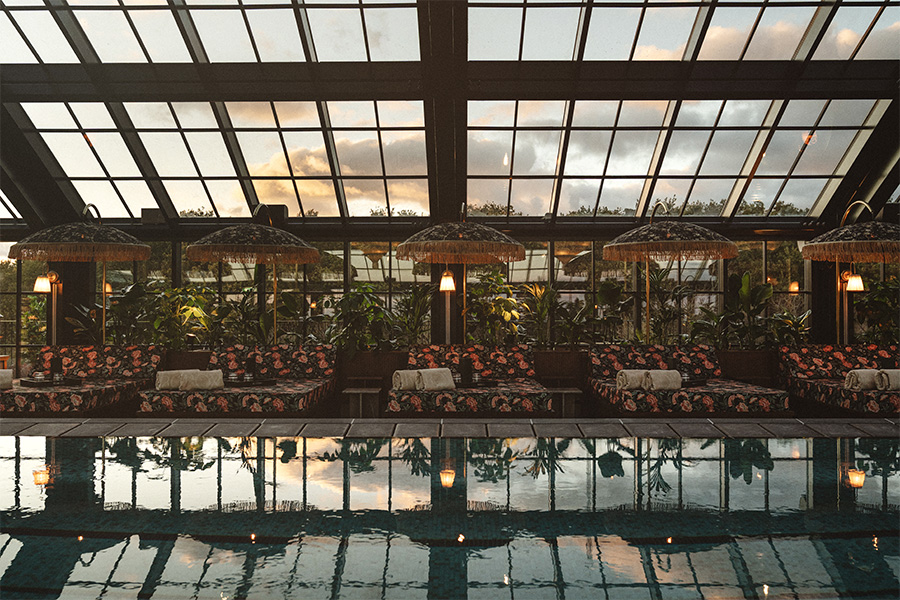Tucked into the rolling hills along the Li River that sits just beneath the Karst mountains, Alila Yangshuo provides guests a peaceful surround and a wholly immersive experience. Once a working sugar mill, preserving the existing building became “a very meaningful design move in terms of respecting the local people and culture,” says Dong Gong, founder and principal architect of Beijing-based Vector Architects. It serves as “the spiritual icon for this entire hotel complex,” the second location in China for Two Roads Hospitality’s luxury boutique brand.
The 117 guestrooms are housed in a new structure, allowing the mill to take center stage while seamlessly creating a balanced blend of old and new. Over 60,000 handmade bricks crafted from local natural stone mingle with the original gray concrete blocks, which appear from afar as part of the mountainside. The new building is simple and horizontal, but also dynamic as it counterbalances the mountain, which is “almost vertical from the ground to the sky,” he explains. Even the pitched roof is styled to look like that of the mill. “The angle of the roof is exactly the same, which is 30 degrees,” he adds.
The depth of that simplicity continues in the interiors from Ju Bin, founder and CEO of Shenzhen, China firm Horizontal Space Design. A rich, neutral color palette and organic materials like natural blond timber and bamboo characterize the contemporary, industrial accommodations. The Sugar House Retreat rooms, for instance, are clean-lined with mountainous landscapes and tradesmen from the ‘60s molded into walls and glass balconies that offer direct views of rock climbers tackling cliffs. Those looking for more seclusion and intimacy can seek refuge in the two-story Garden Townhouses, while the concrete walls of the Heritage suites (located on the upper floors of the old sugar mill) complement high ceilings as bamboo mixes with marble in the bathrooms for an earthy feel. Private pools and bamboo gardens define the Pool Villas, and the one-of-a-kind Family Loft boasts a children’s room complete with bunkbeds, bean bags, and a playful map with animals.
The same simple aesthetic is also present in the hotel’s spa, which draws inspiration from Karst caves where a stone-like spiral staircase welcomes guests to a tranquil environment and traditional Balinese wellness treatments. Housed in the former Sugar Pressing Room, the farm-to-table Sugar House Restaurant is a humble, clean space with expansive windows and doors that open to an outdoor terrace cocooned by lush flora, while the 1969 Bar (equipped with an in-house rum distillery) overlooks the riverside pool, a masterpiece in its own right. Surrounded by the framework of the preserved truss, it leads to the hillside edge with panoramic views, truly allowing guests to absorb the beauty of the countryside, which Gong says is “very different from any other place in China.”
Indeed, the project is “not really about architecture itself,” he adds. “It’s about how to make a place together with an existing structure and nature—that’s the attitude of this whole design.”



